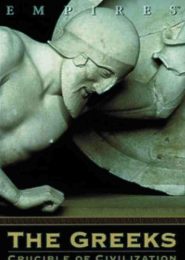Suez: A Very British Crisis (2006)
Suez: A Very British Crisis is a compelling documentary series that delves into the tumultuous events surrounding the Suez Crisis of 1956, a pivotal moment in modern history that marked the decline of British imperial power and the rise of Arab nationalism. This BBC production, directed by Louise Hooper and written by Christabelle Dilks, offers an in-depth look at the political machinations and international tensions that led to a watershed moment for Britain and Egypt.
The series meticulously reconstructs the events leading up to the crisis, when the Egyptian President Gamal Abdel Nasser nationalized the Suez Canal, previously controlled by British and French interests. This bold move was a declaration of Egypt’s sovereignty and an assertion of control over a critical economic resource. In response, Britain, alongside France and Israel, orchestrated a military intervention, aiming to regain control over the canal and remove Nasser from power.
Through dramatic reenactments and interviews with participants and witnesses, the series paints a vivid picture of the crisis. It portrays British Prime Minister Anthony Eden as a man driven to desperation, whose decisions during the crisis would ultimately lead to his downfall and become a national disgrace. Conversely, President Nasser emerged as a national hero, his reputation bolstered by his defiance against colonial influence.
The documentary also explores the broader implications of the crisis, highlighting how it signaled the end of Britain’s ability to act unilaterally on the world stage and foreshadowed the complex politics of regime change and Western intervention in the Middle East. It examines the role of other key figures, such as US President Dwight D. Eisenhower, and the international community’s reaction to the unfolding events.
Suez: A Very British Crisis is not just a historical recount; it is a narrative about occupation, resistance, and the geopolitical chess game of the 20th century. It serves as a mirror reflecting the ongoing struggles for control and influence in the Middle East, resonating with contemporary issues of foreign intervention and the quest for national autonomy.
This series is a must-watch for history enthusiasts and those interested in understanding the dynamics of international relations and the legacy of colonialism. It is a story that, despite being set in the mid-20th century, has themes and consequences that are still relevant in today’s global political landscape.




